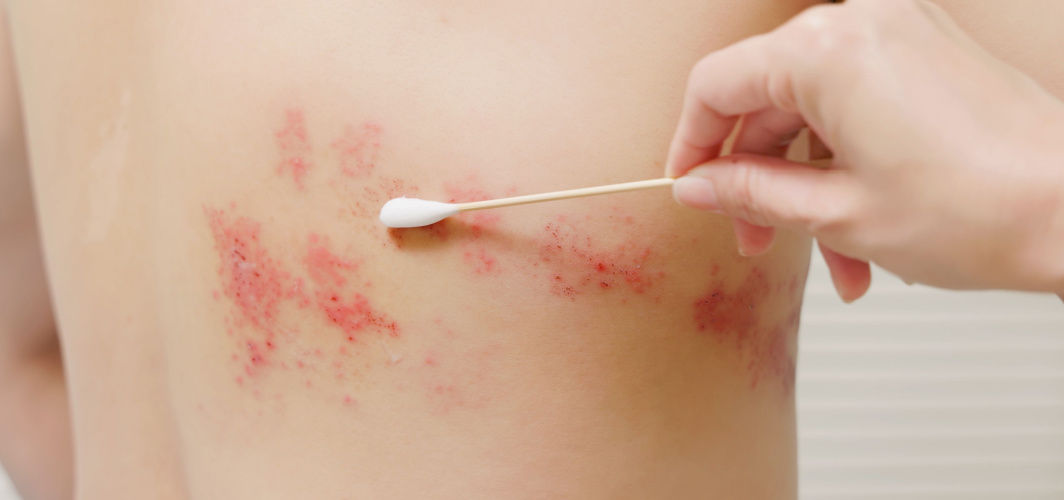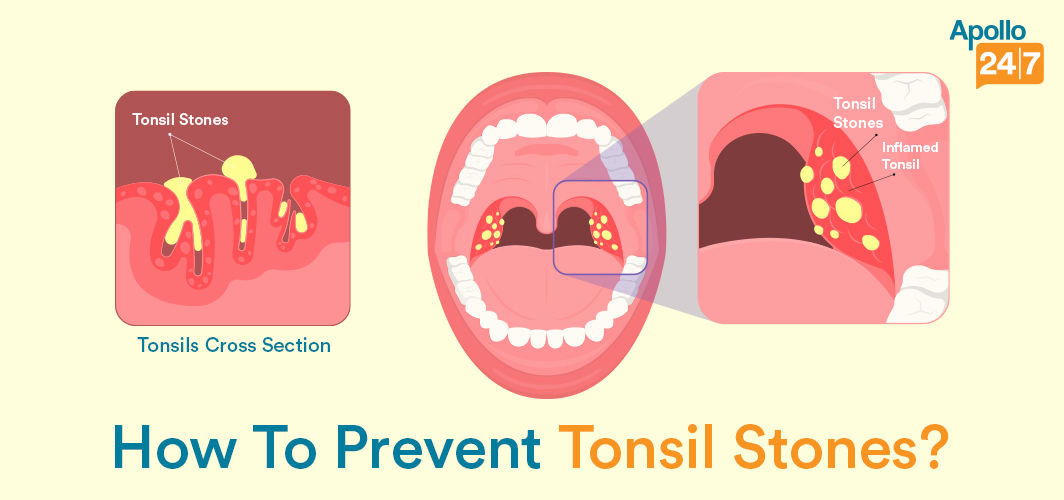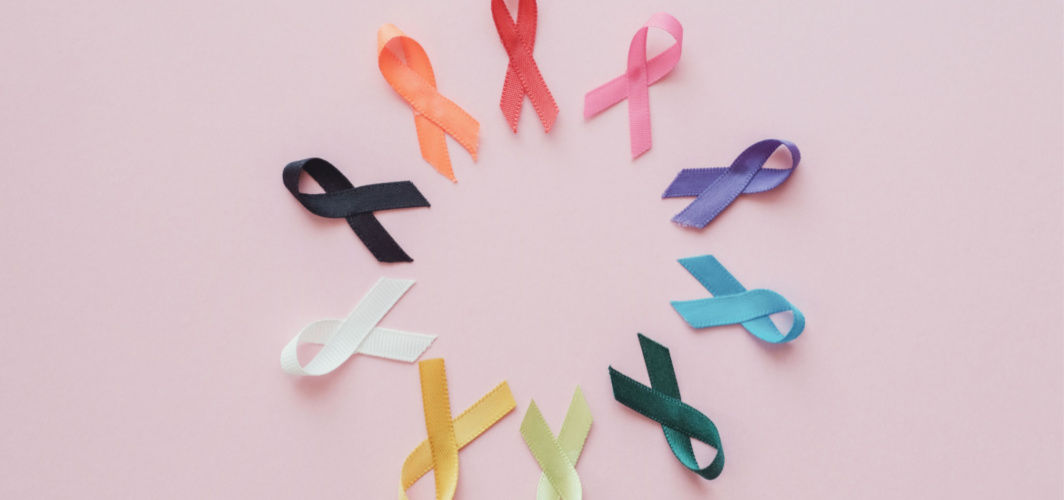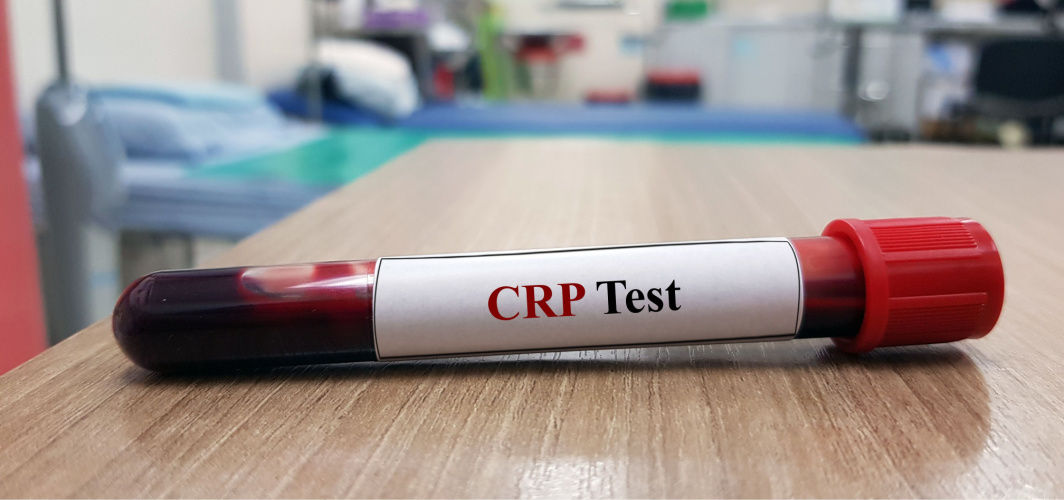General Health
Shingles In Older Adults: Causes And Treatment
8 min read
By Apollo Pharmacy, Published on - 25 October 2023
Share this article
0
0 like

Shingles, also known as herpes zoster, is a viral infection caused by the varicella-zoster virus, the same virus that causes chickenpox. After recovering from chickenpox, the virus can lie dormant in the nerves and reactivate later in life, resulting in shingles. Shingles primarily affects older adults, with the risk increasing significantly after the age of 50.
In India, where the elderly population is growing, shingles have become a significant concern. It is estimated that more than 30% of individuals over 60 years old may develop shingles at some point. Early detection and prompt treatment are crucial for managing shingles effectively. Let's know more about it in this blog.
What is Shingles?
Shingles, also known as herpes zoster, is a viral infection that causes a painful rash. It is caused by the reactivation of the varicella-zoster virus (VZV), which initially causes chickenpox. After recovering from chickenpox, the virus remains dormant in nerve tissue near the spinal cord and brain.
However, it can reactivate later in life, leading to shingles. The exact reason behind this reactivation is unclear, but it is believed to be related to a weakened immune system due to ageing or other factors.
Risk Factors for Shingles in the Elderly
Several factors increase the risk of developing shingles in the elderly:
- Advanced age: The risk of shingles increases with age, particularly after 50 years.
- Weakened immune system: Conditions such as HIV/AIDS or undergoing immunosuppressive therapy increase the risk.
- Previous chickenpox infection: Individuals who have had chickenpox are susceptible to shingles.
- Chronic diseases: People with chronic illnesses like diabetes or cancer have a higher risk.
- Stress: Prolonged emotional or physical stress can weaken the immune system and trigger shingles.
Causes of Shingles Among Elders
Let's delve into the common causes of shingles among elders:
1. Weakened Immune System Due to Aging
As we age, our immune system becomes less efficient in fighting off infections. This decline in immune function can make elders more susceptible to shingles.
2. Prior Exposure to Chickenpox
If you have had chickenpox in the past, even if it was many years ago, the varicella-zoster virus remains dormant in your body. The chickenpox virus can reactivate later in life, causing shingles.
3. Pre-existing Health Conditions and Medication Use
Elders with underlying health conditions such as rheumatoid arthritis or undergoing treatments like chemotherapy are more likely to develop shingles. Certain medications that suppress the immune system, such as corticosteroids, can also increase the risk.
Recognising the Symptoms of Shingles
Recognising the symptoms of shingles is important for early diagnosis and prompt treatment. Here are some key points to be aware of:
1. Early Warning Signs
Here are some early signs of shingles in elders:
- Tingling or burning sensation in a specific area of the body
- Itching or numbness in the same area
- Sensitivity to touch or even light pressure
2. Common Symptoms of Shingles in Elders
Here are some common symptoms of shingles in elders:
- Red, painful rash that develops into fluid-filled blisters
- The rash typically appears on one side of the body, following a nerve pathway
- Blisters may break open and crust over
- Itching, pain, and discomfort in the affected area
3. Differentiating Shingles from Other Skin Conditions
Shingles can be mistaken for other skin conditions like eczema or allergic reactions. However, shingles usually present themselves with a distinct rash pattern and follow a nerve pathway. Consulting a healthcare professional for an accurate diagnosis is crucial.
Diagnosis of Shingles
The diagnosis of shingles includes:
1. Physical Examination
To diagnose shingles, a doctor will typically conduct a physical examination and assess the patient's medical history. During the physical examination, the doctor will look for the characteristic rash and blisters associated with shingles. They will also ask about the patient's symptoms, such as pain, itching, or tingling in the affected area.
Additionally, the doctor will inquire about any recent illnesses or medications that could have triggered the outbreak.
2. Laboratory Tests
In most cases, a doctor can diagnose shingles based on the physical examination and medical history assessment alone. However, in some instances, they may order laboratory tests to confirm the diagnosis.
These tests can include viral cultures, polymerase chain reaction (PCR) tests, or blood tests to detect specific antibodies associated with the varicella-zoster virus.
Treatment of Shingles
When it comes to managing shingles symptoms, taking a holistic approach can be beneficial. These approaches aim to address the overall well-being of individuals by incorporating complementary therapies, nutrition and diet recommendations, and lifestyle modifications. Here are some strategies that can help:
1. Antiviral Medications for Controlling the Infection
Once a diagnosis of shingles is confirmed, treatment typically involves antiviral medications to control the infection. These medications, such as acyclovir or valacyclovir, can help reduce the duration and severity of symptoms if started early in the course of the disease. Elderly patients need to seek medical attention promptly to ensure the timely initiation of antiviral drugs for shingles.
2. Pain Management Strategies for Elderly Patients
Pain management is an essential aspect of shingles treatment, particularly in elderly patients who may experience more severe pain.
Over-the-counter pain relievers like acetaminophen or nonsteroidal anti-inflammatory drugs (NSAIDs) can be used to alleviate mild to moderate pain. In more severe cases, prescription pain medications or topical creams containing capsaicin or lidocaine may be recommended.
3. Complementary Therapies for Pain Relief
Some complementary therapies that may help relieve shingles pain include:
- Acupuncture: Stimulates specific points on the body to promote healing and reduce pain.
- Aromatherapy: Uses essential oils to alleviate pain and promote relaxation.
- Massage therapy: Helps improve circulation and relieve muscle tension.
Consult your doctor before using any of the aforementioned therapies.
4. Nutrition and Diet Recommendations to Boost Immunity
Dietary changes that may help treat symptoms of shingles and boost immunity include:
- Add foods rich in vitamins A, C, and E, such as leafy greens, citrus fruits, and nuts to your diet.
- Consume foods high in lysine, like fish, legumes, and dairy products as lysine helps improve the immune system.
- Avoid foods high in arginine, such as chocolate, red meat & chicken as it can suppress the immune system.
5. Lifestyle Modifications to Reduce Stress and Promote Healing
Lifestyle changes that may help accelerate healing include:
- Practice stress management techniques like meditation or yoga.
- Get at least 8 hours of sleep
- Engage in regular physical activity such as brisk walking, cycling, or swimming to boost overall health.
How to Prevent Shingles in Elders?
To prevent shingles in elders you can follow these measures:
1. Vaccination for Shingles
Vaccination is an effective way to prevent shingles in older adults. The shingles vaccine, also known as the herpes zoster vaccine, helps to boost immunity against the varicella-zoster virus (VZV) that causes shingles. It is recommended for individuals aged 50 years and above.
The shingles vaccine contains a weakened form of the varicella-zoster virus, which stimulates the immune system to produce antibodies to fight against the virus. These antibodies help to prevent the reactivation of the virus and reduce the risk of developing shingles.
2. Why is the Shingles Vaccine Important for the Elderly?
In India, the elderly population is at a higher risk of developing shingles due to factors such as weakened immune systems and underlying health conditions. Vaccination plays a crucial role in preventing shingles and its complications among older adults.
By getting vaccinated, elderly individuals can significantly reduce their risk of developing shingles and related complications such as postherpetic neuralgia (PHN). PHN is a long-lasting and painful condition that occurs after a shingles episode.
3. Boosting Immunity and Hygiene Practices
Apart from vaccination, there are other preventive measures that elderly individuals can take to reduce their risk of developing shingles:
- Boosting immunity: A healthy immune system can help prevent shingles. Encourage regular exercise, a balanced diet rich in vitamins and minerals, proper sleep, and stress management techniques.
- Hygiene practices: Good hygiene can help prevent the spread of the varicella-zoster virus. Encourage regular handwashing, avoiding close contact with individuals who have active shingles lesions, and maintaining cleanliness.
- Managing chronic conditions: Proper management of chronic conditions such as diabetes, heart disease, and cancer can help reduce the risk of developing shingles.
- Seeking medical advice: If you suspect shingles or experience symptoms such as a painful rash or blisters, seek prompt medical advice. Early diagnosis and treatment can help prevent complications.
Takeaway
It is crucial to emphasise the importance of timely diagnosis and treatment for elders with shingles in India. Early detection can help manage symptoms effectively and prevent complications. It is essential to raise community awareness about the disease and provide support to affected individuals.
To reduce your risk of getting shingles,
FAQs
Q. Can lifestyle factors affect the risk of developing shingles?
Yes, certain lifestyle factors can increase the risk of developing shingles. Factors such as stress, a weakened immune system, and old age can make a person more susceptible to the virus reactivating.
Q. Are there any vaccines available for shingles?
Yes, there are vaccines available to prevent shingles. The most common vaccine is called Zostavax, which is recommended for individuals aged 60 years and older. Another vaccine called Shingrix is more effective and is now preferred over Zostavax.
Q. Are there any complications associated with shingles?
While most cases of shingles resolve without complications, some individuals may experience long-lasting nerve pain called postherpetic neuralgia (PHN). Other rare complications include bacterial skin infections, eye disorders, and neurological problems.
Q. Are shingles contagious?
Shingles can only be transmitted to individuals who have not had chickenpox or have not been vaccinated against it. Direct contact with the fluid from shingles blisters can cause chickenpox in susceptible individuals.
Q. Can shingles be prevented?
The best way to prevent shingles is through vaccination. The shingles vaccine, also known as Zostavax or Shingrix, is recommended for adults aged 50 years and older. It significantly reduces the risk of developing shingles and its complications.
General Health
Leave Comment
Recommended for you

General Health
Tonsil Stones and How to Prevent Them?
Are you prone to recurrent tonsillitis and also shy away from talking because you suffer from bad breath (halitosis)? If yes, you might have tonsil stones. Read this to know how to prevent tonsil stones.

General Health
7 Ways to Reduce the Risk of Cancer
According to medical and healthcare experts, an individual’s risk of developing cancer is influenced heavily by his or her lifestyle and dietary choices.

General Health
C- Reactive Protein (CRP) Test: Readings And Ways To Lower It
Learn about CRP, a protein produced by the liver in response to inflammation. Discover its role in diagnosing and monitoring diseases like infections, autoimmune disorders, and cardiovascular conditions. Stay informed about the latest guidelines, technologies, and lifestyle factors related to CRP.
Subscribe
Sign up for our free Health Library Daily Newsletter
Get doctor-approved health tips, news, and more.
Visual Stories

Plant-based Foods That Are a Great Source of Iron
Tap to continue exploring
Recommended for you

General Health
Tonsil Stones and How to Prevent Them?
Are you prone to recurrent tonsillitis and also shy away from talking because you suffer from bad breath (halitosis)? If yes, you might have tonsil stones. Read this to know how to prevent tonsil stones.

General Health
7 Ways to Reduce the Risk of Cancer
According to medical and healthcare experts, an individual’s risk of developing cancer is influenced heavily by his or her lifestyle and dietary choices.

General Health
C- Reactive Protein (CRP) Test: Readings And Ways To Lower It
Learn about CRP, a protein produced by the liver in response to inflammation. Discover its role in diagnosing and monitoring diseases like infections, autoimmune disorders, and cardiovascular conditions. Stay informed about the latest guidelines, technologies, and lifestyle factors related to CRP.